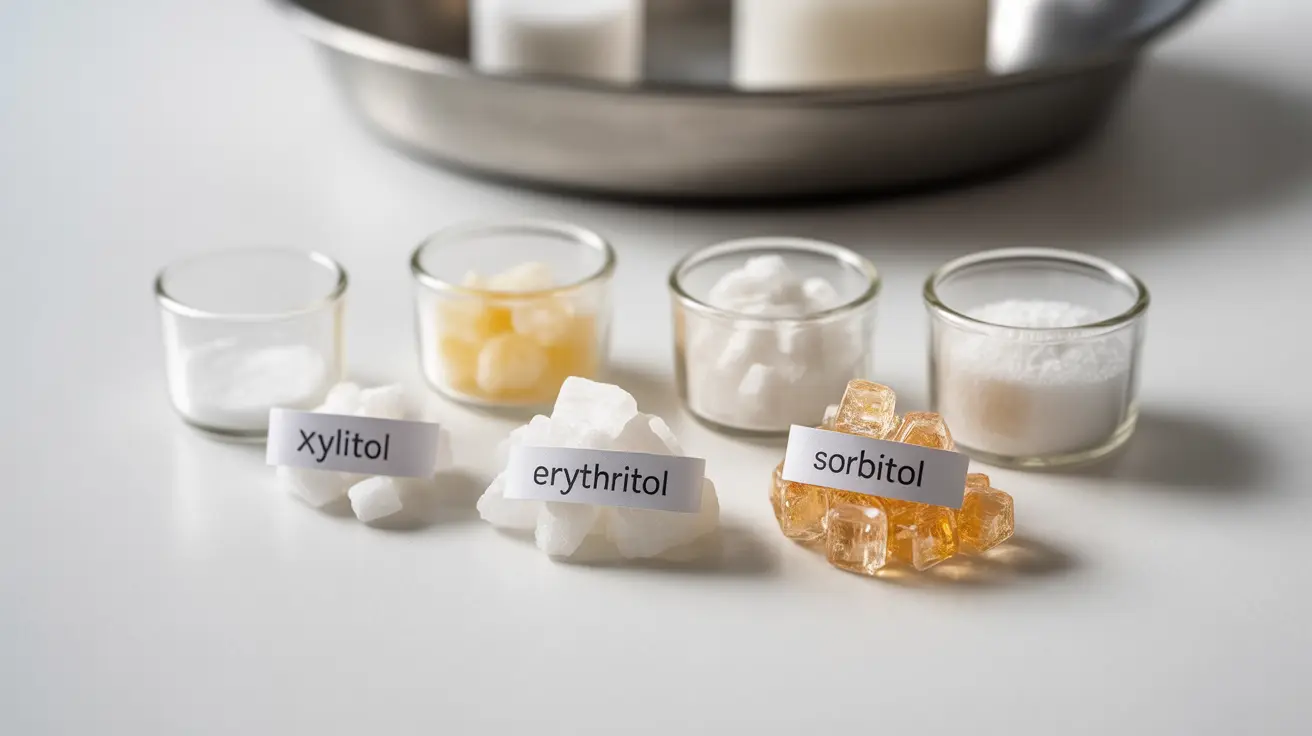Sugar alcohols have become increasingly popular as sugar alternatives, especially among health-conscious consumers and people managing diabetes. These unique sweeteners offer a compromise between satisfying sweet cravings and maintaining better blood sugar control. Understanding what sugar alcohols are and how they affect your body is crucial for making informed dietary choices.
While they share similarities with regular sugar in taste, sugar alcohols are distinctly different in their chemical structure and how the body processes them. This comprehensive guide will explore everything you need to know about these alternative sweeteners.
What Are Sugar Alcohols?
Sugar alcohols, also known as polyols, are carbohydrates that occur naturally in certain fruits and vegetables but are also manufactured for commercial use. Despite their name, they don't contain ethanol (drinking alcohol). Instead, their chemical structure combines characteristics of sugar molecules and alcohol molecules, hence the name.
Common types of sugar alcohols include:
- Xylitol (found naturally in berries and mushrooms)
- Erythritol (naturally present in some fruits)
- Sorbitol (found in apples and pears)
- Maltitol
- Mannitol
Health Benefits and Blood Sugar Impact
One of the primary advantages of sugar alcohols is their reduced impact on blood sugar levels compared to regular sugar. They are only partially absorbed by the body, which means they provide fewer calories and cause a smaller rise in blood glucose levels.
Benefits for Diabetes Management
For people with diabetes, sugar alcohols can be a valuable tool in managing blood sugar levels. They typically require little to no insulin for processing, making them a safer alternative to regular sugar. However, it's essential to monitor individual responses and consult healthcare providers about incorporating them into a diabetes management plan.
Common Sources of Sugar Alcohols
Sugar alcohols are found in many "sugar-free" and "no sugar added" products. Common sources include:
- Sugar-free candies and gum
- Diet sodas and beverages
- Sugar-free baked goods
- Protein bars and meal replacement products
- Sugar-free ice cream and frozen desserts
Reading Food Labels
On food labels, sugar alcohols may be listed under their specific names (xylitol, erythritol, etc.) or collectively as "sugar alcohols." They're often found in products labeled as "sugar-free" or "reduced sugar."
Potential Side Effects and Considerations
While sugar alcohols offer several benefits, they can cause digestive issues when consumed in large amounts. This is because they're not fully absorbed in the digestive system and can ferment in the large intestine.
Managing Digestive Symptoms
To minimize potential digestive discomfort:
- Introduce sugar alcohols gradually into your diet
- Pay attention to portion sizes
- Stay hydrated
- Consider individual tolerance levels
- Choose products with erythritol, which typically causes fewer digestive issues
Frequently Asked Questions
What are sugar alcohols and how do they differ from regular sugar? Sugar alcohols are carbohydrates that provide sweetness with fewer calories than regular sugar. They're partially absorbed by the body, resulting in a lower blood sugar impact and fewer calories per gram compared to traditional sugar.
Are sugar alcohols safe for people with diabetes and how do they affect blood sugar levels? Yes, sugar alcohols are generally safe for people with diabetes as they have a lower impact on blood sugar levels. They require little to no insulin for processing, but individual responses may vary. It's important to monitor blood sugar levels and consult with healthcare providers.
What are the common side effects of consuming sugar alcohols in large amounts? Common side effects include bloating, gas, and diarrhea. These occur because sugar alcohols aren't fully absorbed in the digestive system and can ferment in the large intestine, especially when consumed in large quantities.
Which foods typically contain sugar alcohols and how can I identify them on labels? Sugar alcohols are commonly found in sugar-free products like candies, gum, baked goods, and protein bars. They're listed on labels under specific names (xylitol, erythritol, etc.) or as "sugar alcohols" in the ingredients list.
Can sugar alcohols cause digestive problems and how can I reduce these symptoms? Yes, sugar alcohols can cause digestive issues. To reduce symptoms, introduce them gradually, monitor portion sizes, stay hydrated, and pay attention to your individual tolerance. Choose products with erythritol, which typically causes fewer digestive problems.




